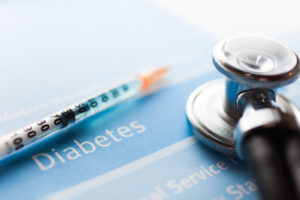Creating a “Fall-Proof” Home for Your Parent for Their Hip Replacement Recovery
1Heart Caregiver Services is Now HCO Licensed
August 3, 2016
Some Useful Apps for Tech Savvy Seniors
August 14, 2016Undergoing a total hip replacement surgery can be a life changing decision for your elderly parent. This procedure, which is performed on more than 330,000 people throughout the United States each year, can help them to experience relief from pain, stiffness, and lack of range of motion that can stem from a wide variety of factors including arthritis, injury, tumors, and more. Despite this being a relatively common procedure, it is important to remember that there is still an extensive recovery period that your aging parent must go through before truly getting all of the benefits of the surgery. During this time they will need to give their body a chance to heal and get used to their new hip. While there are many aspects of recovery from a hip replacement surgery, one of the most important is avoiding falls.
Falls are the leading cause of injury to elderly adults each year, and can be extremely easy to sustain when recovering from a hip replacement surgery. Just one fall, however, can lead to extensive consequences that may put their entire recovery, and even their health or life, in jeopardy. Taking steps to fall-proof the home can help to protect your parent and ensure that they make the most out of their recovery.
Use these tips to help create a fall-proof home for your parent for during their hip replacement recovery:
- Relocate the bedroom. Your parent will not be able to get up and down stairs for some time after their procedure. If they try to accomplish this too soon they could experience a serious fall. Instead, relocate their bedroom downstairs so it is more easily accessible. Rent a hospital bed for the home if necessary.
- Open walkways. Remove anything that might get in the way of your parent’s mobility. This can include loose floor coverings, decorative items, or collections of things such as books and magazines. You should also make sure that the furniture is arranged so that the walking paths are clear and your parent is able to move comfortably around the house.
- Add grab bars. Even with physical assistance your parent will likely need the additional support and balance of grabbing onto something as they walk. Prevent them from grabbing onto something unstable and increasing the chances of a fall by installing grab bars throughout the home, particularly in vulnerable areas such as the bathroom. Make sure that these are rated for their weight and installed properly to give the maximum benefit.
While it is not something that you specifically do for your parent’s home, one of the things that you can do for your aging parent to help prevent falls during their hip replacement surgery recovery is hire elderly care for them. Having an elderly home care services provider in the home with them will help your aging parent avoid situations in which they are at higher risk of falling. This can include providing physical support and assistance during walking, transferring, bathing, toileting, and dressing, as well as monitoring the condition of the home and ensuring that it does not get cluttered or rearranged in a way that could increase the chances of a fall. This will help your parent to avoid dangerous situations and potentially devastating injuries that put their recovery, and their overall health and wellbeing, at serious risk.



